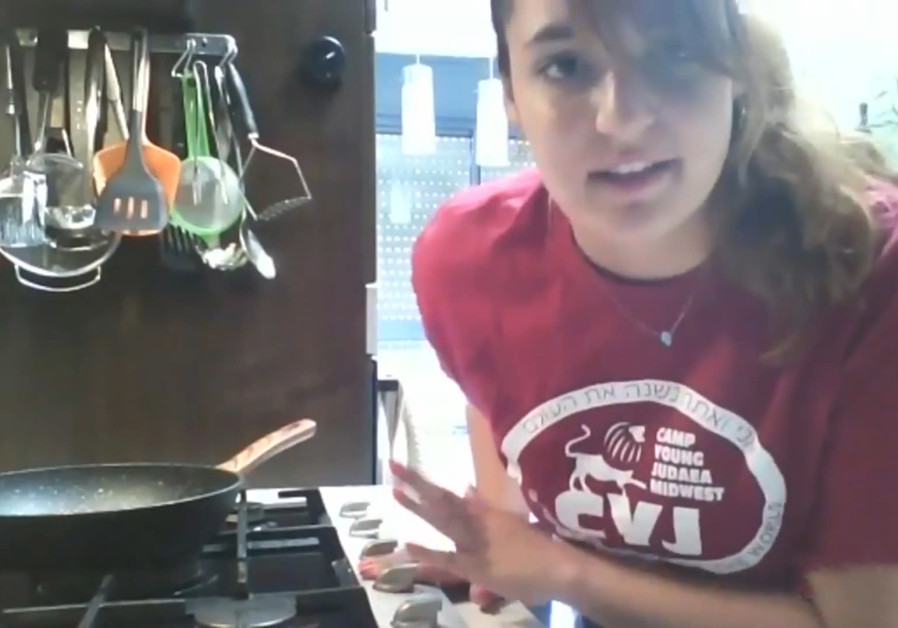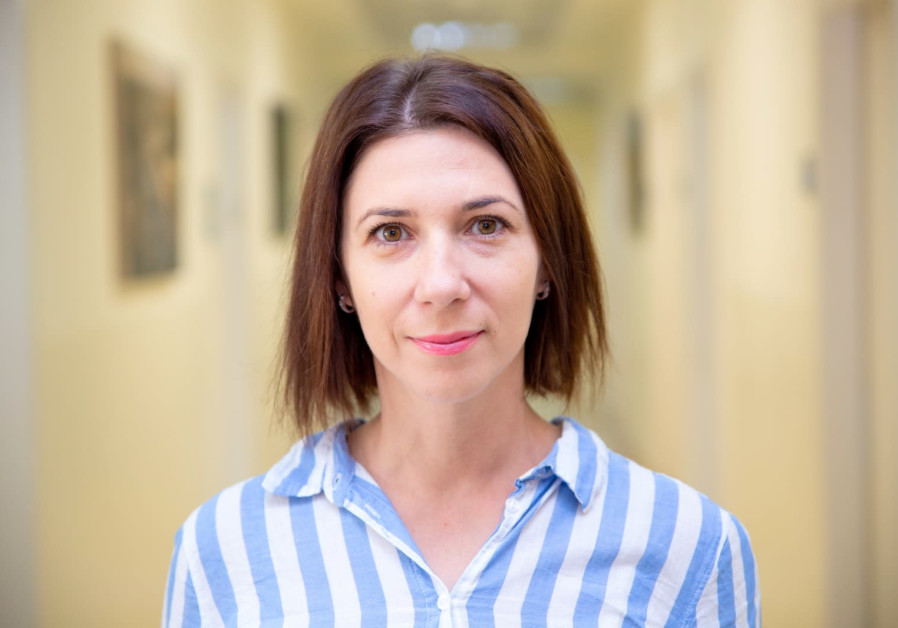JEWISH AGENCY ‘SHLICHIM’ ARRIVE IN THE VIRTUAL SPACE
Aug 06, 2020 The Jerusalem Post
“We started thinking about ways to incorporate Israel and Israelis as an integral part of the summer’s virtual activities.”
by Alan Rosenbaum
“At the beginning of March, we sensed that things were not going to be the same.”
Lapid Levi, director of the North America Summer Shlichim Program for The Jewish Agency for Israel, was in a quandary. Each year, The Jewish Agency sends 1,500 emissaries from Israel to Jewish summer camps in the United States and Canada to inspire, educate, and bring the spirit of Israel to tens of thousands of Jewish children and teens. With the onset of the COVID-19 pandemic, summer camps had to alter their plans and plan online programming and activities instead of actual physical camp activities.
Levi and his team wanted to ensure that Israel and Israelis would remain a part of the online activities that Jewish camps were planning to conduct in the face of the pandemic.
“We started to think about the ways to have Israel and Israelis as an integral part of the summer’s virtual space for activities,” he says. In order to enable the Israeli shlichim (representatives, emissaries) to remain as a central part of the camp community – even in a virtual setting – The Jewish Agency for Israel, together with The iCenter launched Shlichim.IL, so that the Agency’s valued cultural emissaries could continue to offer programs–virtually–at Jewish camps this summer.
Levi and his team trained the shlichim in the basics of informal online education, providing tools and training so that they could prepare enjoyable interactive activities for campers. More than 80 shlichim joined the program, presenting online virtual classes for thousands of campers in 70 different camps throughout the United States and Canada.
The sessions, which began in June and will continue through August, have been very successful, winning acclaim from both campers and camp directors. The Jewish Agency for Israel tailored its programs for the wide variety of camps that they serve, including those affiliated with the Orthodox, Conservative, Reform and Reconstructionist movements, as well as with JCCs and other Jewish organizations. The shlichim, says Levi, were very creative and offered virtual classes on Israeli dance, Hebrew language, Israeli cooking, sports, Krav Maga (self-defense) and others. In some cases, the virtual sessions, which were conducted on Zoom and other platforms, enabled shlichim to show their homes to campers, thus presenting a personal side that they had not previously seen.
HADAR SHOSHANI from Ramat Gan, who had worked as a shlicha to Young Judaea Camp Midwest in Wisconsin last year, was disappointed when she learned that camp was canceled for the summer. She enjoys working with the campers and loves learning and sharing in Jewish experiences. Hadar was thrilled when she was offered an opportunity to work as a virtual shlicha to the camp and decided to teach an online Israeli cooking class to children ages six through 12, most of whom hail from the Chicago area and other northern cities.
“Cooking is a new hobby that I started during this time of corona,” she says.
Shoshani, who taught the class from her home, thoroughly enjoyed the experience. Participants learned to make schnitzel, bourekas, pita and shakshuka.
“Nothing can match the feeling when they eat what they made and you see their smiles,” says Shoshani. “Every week, I wait for the smiles. It fills me with energy.”
HADAR SHOSHANI teaches American campers the art of Israeli cooking from her Ramat Gan home. (Photo: The Jewish Agency)
Shoshani says that teaching the online cooking class required some adjustment.
“Teaching online is a completely different kind of interaction. I can’t physically help the child, so I must do it via the camera.”
She found the absence of background noise or of children speaking with each other to be somewhat disconcerting and hit on a solution of playing Israeli music during the cooking lessons so that campers could hear the music of Arik Einstein while kneading dough.
“It gave energy to the class,” she says.
Campers particularly enjoyed the virtual class from Hadar’s kitchen, as her mother, grandmother, and girlfriends frequently stopped by to make appearances. Hadar also injected some informal language education, by teaching her charges the meaning of popular Israeli slang, like “Sababa.” While a virtual camp cannot replace a physical experience, all in all, she says, “It was a wonderful experience. It was a ray of light to stay connected to the camp, and to feel a part of it.”
RINA GELMAN, director of the RSJ (Russian-Speaking Jewry) Informal Education Division at The Jewish Agency, adds that Jewish summer camps were also held throughout the former Soviet Union (FSU), primarily in the virtual space, because of the limitations caused by the COVID-19 crisis. Dozens of summer camps for children, teenagers and students are held every year in the Jewish communities in the FSU, organized by The Jewish Agency and local Jewish organizations, and supported by the UJA-Federation of New York as well as other Federations. Approximately 350 Russian-speaking Israeli shlichim work in these camps each year under the auspices of The Jewish Agency, in conjunction with the Genesis Philanthropy Group, to increase the Jewish identity of the younger generation and strengthen its connection with Israel. This year, in the shadow of the COVID-19 crisis, the activity of the Israeli shlichim in the FSU summer camps is being held online.
AVIVA BARYKIN, who has worked at Jewish Agency camps in the Former Soviet Union as well as in Israel, was somewhat skeptical as to how well virtual instruction would work.
“I had never given virtual classes before,” she says.
RINA GELMAN, director, RSJ Informal Education Division at The Jewish Agency for Israel. (Aner Tausig)
Barykin, who made aliyah from the FSU at the age of 14 via the Na’ale program, has been acting as an online emissary to camps in the FSU this summer. Most of her campers live in the Moscow area. Barykin, who lives in Jerusalem, hit upon the idea of presenting a virtual tour of Jerusalem’s Old City in real time, from an Israeli perspective.
“Though I speak Russian to the kids, I think of myself as an Israeli. They see me in Jerusalem, and I wanted to bring them a true Israeli experience, so that they could see something special in real-time, to see a small part of Israel.”
In June, armed with just a smartphone, Barykin left her home and went to the Old City, where she proceeded to give a live real-time tour of the unique sites and scenes of Jerusalem to 35 campers in the FSU as they sat in their homes. As she walked through the streets and alleyways, she turned the phone’s camera towards her surroundings and described what the campers were seeing on their screens, answering their questions.
“They didn’t see very much of me,” she quips, “but they saw everything that was in front of me and around me.”
When she arrived at the Western Wall plaza, she asked the viewers to think of their wishes and dreams, and hope for them to come true, perpetuating the tradition – virtually at least – of writing personal wishes on scraps of paper and inserting them between the stones of the wall. Says Barykin, “I can say that there is a connection and a feeling that comes across, even when it is presented through the camera.”
LEVI EXPLAINS that the shlichim who participated in the virtual program are long-time veterans of these camps, who know and are familiar with their audience, from previous years.
“The fact that the camp directors cooperated and were flexible with the shlichim and let them be creative made it inspiring and different. They did an amazing job.”
Levi says that the shlichim themselves were surprised that informal online education could be effective and engaging. With that in mind, he says that The Jewish Agency will be expanding its use of the virtual space, both for preparing shlichim, and for possible educational instruction beyond this summer and throughout the year to communities in the Diaspora. He notes that the use of online, virtual informal education can be especially helpful in smaller communities that do not frequently physically host shlichim.
“We are grateful for the help we received from our partners and camp directors,” he says. “It was done in partnership and collaboration, and that’s what made it successful. The fact that Israel was a part of their summer is a huge achievement.”
This article was written in cooperation with The Jewish Agency for Israel.

